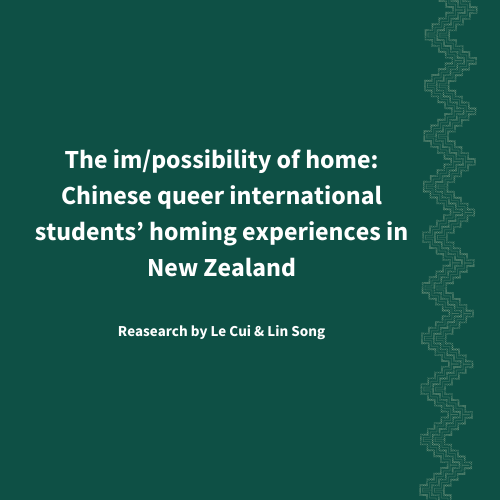This paper explores the experiences of Chinese queer international students in New Zealand as they leave behind a heteronormative past home and seek a new queer home and future. Departing from conventional conceptions of ‘home’ as a static location or predetermined condition, this paper adopts ‘homing’ as a theoretical concept to capture the ongoing, processual, and often incomplete formation of home. Based on 15 in-depth interviews, this study reveals that students’ homing experiences are shaped by the intersection of sexuality and ethnicity, as evidenced by their marginalization and exclusion within both the Chinese community and the local queer community. They also deal with ongoing political censorship from China, which forces them to practice self-censorship and adopt self-protection strategies. These experiences with local structures of inequality and the enduring influence of the past home illustrate that queer migration is not a straightforward path toward liberation and empowerment. By capturing Chinese queer international students’ feelings of displacement and their ongoing negotiations with both their country of origin and the host society, this paper highlights homing as an embodied, non-linear, and continuous process shaped by transnational power structures and intersecting identities, including sexuality, ethnicity, citizenship, and migration status.

